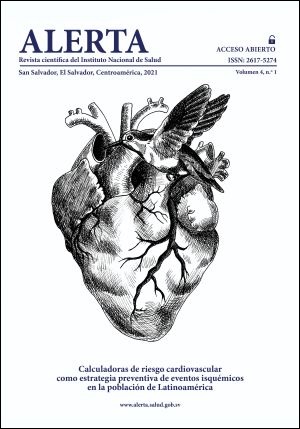Cardiovascular risk calculators as a preventive strategy for ischemic events in the Latin American population.
DOI:
https://doi.org/10.5377/alerta.v4i1.10269Abstract
In the middle of the 20th century, a new paradigm focused on prevention emerged and not just for the management of patients with cardiovascular diseases. This approach seeks to identify risk indicators involved in the development of these pathologies, to design preventive interventions. Currently, there are multiple risk score to calculate the risk of major cardiovascular events in a given time. In this bibliographic review, a series of frequently used scores and risk calculators will be presented, describing their different qualities, benefits, opportunities, strengths, and weaknesses. Evidence from the following tools will be reviewed: Framingham, QRISK3 (QRESEARCH cardiovascular risk algorithm), American Heart Association, World Health Organization, Systematic Coronary Risk Evaluation, and Gaziano. It is essential to apply these calculators routinely in the Latin American population and determine which tool may be more appropriate according to the characteristics of the population.
Downloads
1421
Downloads
Published
How to Cite
Issue
Section
License
Copyright (c) 2021 Iris Gabriela Portillo, Reyna de la Paz Orellana Flores, Mónica Alejandra Villarroel Martínez

This work is licensed under a Creative Commons Attribution 4.0 International License.
Privacy statement:
Alerta articles are published under license Creative Commons 4.0 CC BY: https://creativecommons.org/licenses/by/4.0/
Authorship rights
Revista Alerta gives the authors exclusive control of their work and the right to be acknowledged and cited.





